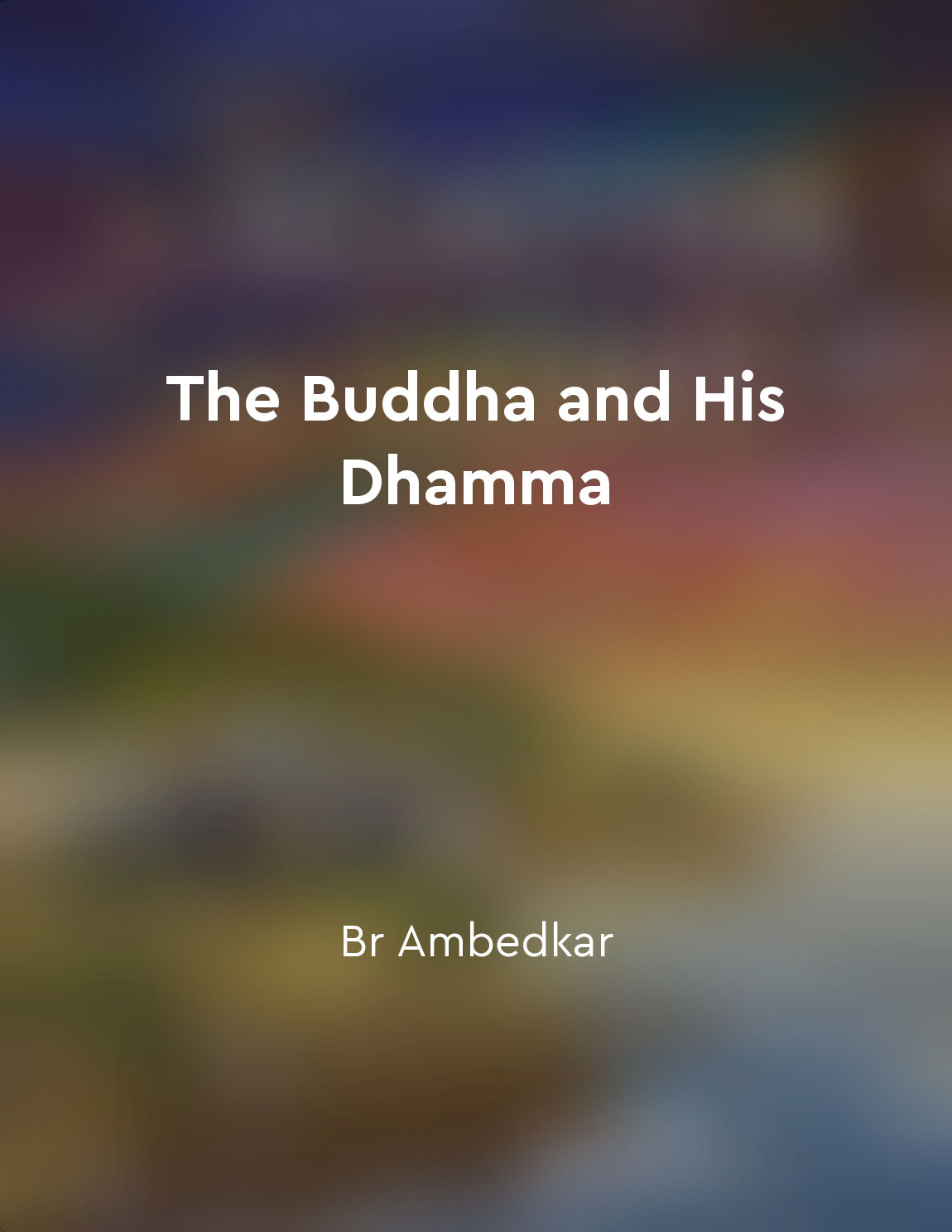His concept of the self is dynamic and evolving from "summary" of A New Approach to Iqbal by Muḥammad Ḥasan
Muhammad Iqbal's understanding of the self is not static or fixed; rather, he views it as a dynamic entity that is constantly evolving and changing. According to Iqbal, the self is not a rigid and unchanging essence, but rather a fluid and transformative force that is shaped by one's experiences, thoughts, and actions. Iqbal's concept of the self is deeply rooted in his philosophical and spiritual beliefs. He believed that the self is constantly in a state of flux, as individuals navigate the complexities of existence and strive towards self-realization. For Iqbal, the self is not a finite entity with a predetermined nature, but rather a process of becoming that is characterized by growth, development, and transformation. In Iqbal's view, the self is not separate from the world around it; rather, it is intimately connected to and influenced by its environment. This interconnectedness means that the self is constantly being shaped and reshaped by external factors, such as social norms, cultural values, and interpersonal relationships. Furthermore, Iqbal believed that the self is not a passive entity that is merely acted upon by external forces. Instead, he saw the self as an active agent that has the power to shape its own destiny and create its own reality. This agency is what allows individuals to transcend their limitations, break free from societal constraints, and realize their full potential.- Iqbal's concept of the self is one that emphasizes growth, transformation, and self-actualization. By viewing the self as a dynamic and evolving entity, Iqbal encourages individuals to embrace change, challenge their assumptions, and strive for personal and spiritual growth.
Similar Posts
Emotional resilience
Emotional resilience is not just the ability to bounce back from adversity. It is the capacity to learn and grow from difficult...
Vivekananda's teachings continue to inspire people around the world
Swami Vivekananda's profound teachings have left an indelible mark on humanity, transcending geographical boundaries and cultur...

Mindfulness cultivates present moment awareness
In order to fully understand the concept of mindfulness cultivating present moment awareness, it is essential to grasp the inte...

Through right mindfulness and concentration, one can achieve enlightenment
The Buddha taught that the path to enlightenment involves the practice of right mindfulness and concentration. Through the cult...
Transcend material desires
To transcend material desires means to rise above the cravings and attachments to worldly possessions. It involves recognizing ...
Concepts without intuitions are empty
According to Kant, concepts without intuitions lack content and are therefore empty. In other words, concepts, or the general i...
The practice of Wu Wei can bring a sense of ease to all aspects of life
The practice of Wu Wei, as described by ancient Chinese philosophers, involves effortless action and going with the flow of lif...
Positive mindset
Having a positive mindset is a critical component of living a fulfilling and successful life. It is the foundation upon which a...
Understanding the nature of reality
The concept of understanding the nature of reality is a crucial aspect of both Buddhism and neuroscience. In Buddhism, this con...
The Buddha's teachings are universal truths
The Buddha's teachings are universal truths that resonate across time and space, touching the hearts and minds of people from a...

